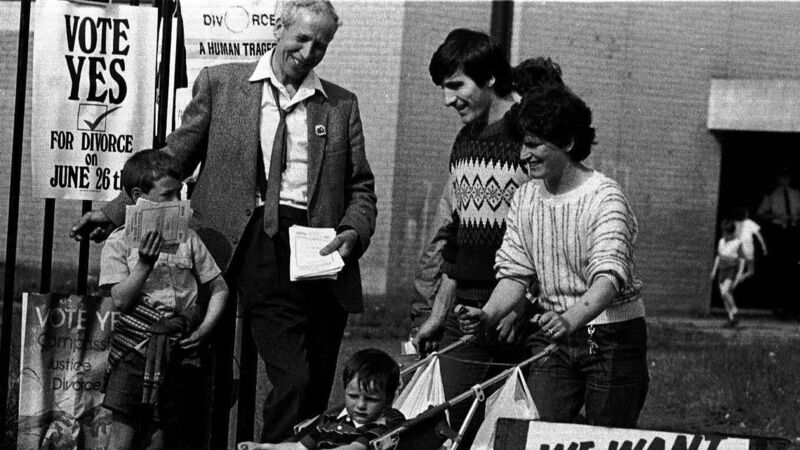Book Review: Mary Kenny pines for Catholic Ireland of bygone days

- The Way We Were: Catholic Ireland Since 1922
- Mary Kenny
- Columba Books, €19.99
Try from €1.50 / week
SUBSCRIBE
Polling day in Ballymun for the first divorce referendum in 1986 in which almost two thirds voted no; although a second referendum in 1995 allowed for the dissolution of marriage under certain conditions. Mary Kenny devotes a lot of attention to the divorce, marriage equality, and abortion referendums, and the political machinations around them in ‘The Way We Were’.
Already a subscriber? Sign in
You have reached your article limit.
Annual €130 €80
Best value
Monthly €12€6 / month
Introductory offers for new customers. Annual billed once for first year. Renews at €130. Monthly initial discount (first 3 months) billed monthly, then €12 a month. Ts&Cs apply.
Newsletter
Music, film art, culture, books and more from Munster and beyond.......curated weekly by the Irish Examiner Arts Editor.
Newsletter
Music, film art, culture, books and more from Munster and beyond.......curated weekly by the Irish Examiner Arts Editor.
© Examiner Echo Group Limited